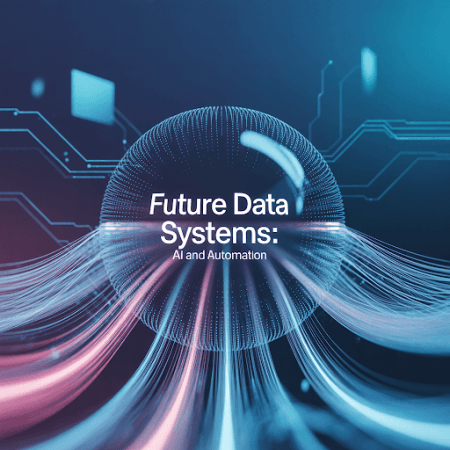
In today's world, Madhuri Koripalli, a scholar with a background in computer science and data systems, presents a compelling vision for the future of data management. In this article, she unpacks a wave of innovations redefining how organizations handle data at scale.
Metadata Intelligence: The Brain of Autonomous Platforms
In intelligent data systems, metadata is no longer just documentation it's the nerve center. By embedding AI into metadata systems, platforms go beyond classification and search. They interpret usage patterns, optimize storage formats, and recommend datasets autonomously. These smart systems reduce manual tasks and reveal insights by linking technical attributes with business relevance.
The transformation is clear. Organizations using AI-enhanced metadata saw a 62% reduction in data discovery time and a 72% drop in data quality incidents. Business stakeholders' trust in data rose by 43%, proving data is more valuable when understandable. In commerce, this drove a 24% rise in conversion rates and a 64% boost in catalog efficiency making metadata a strategic priority.
Self-Healing Pipelines: From Fragility to Resilience
Traditional ETL pipelines break easily schema changes, data anomalies, and unexpected input formats often halt operations. AI is injecting resilience into these systems through self-healing capabilities. These pipelines identify anomalies, remediate issues on the fly, and learn from past failures to prevent recurrence. This shift is real. Implementations have reduced pipeline-related incidents by 78% and cut data latency by 64%. End-to-end reliability reached near-perfect levels, and engineering teams reclaimed nearly 19 hours per week once lost to firefighting. With self-healing architectures, platforms maintain operations amid partial failures, reducing downtime by over 75% and lowering operational costs significantly.
Predictive Resource Optimization: Anticipating the Future
Managing computing resources has long been a balancing act between performance and cost. With predictive AI, this balance is no longer guesswork. Platforms forecast demand using historical trends and business cycles, automatically adjusting compute power, storage, and bandwidth in real-time. Advanced models like LSTM and attention-based forecasting achieve over 92% accuracy for short-term predictions. The result: a 43.8% improvement in resource utilization and a 76% drop in SLA violations. Beyond savings up to $476,000 annually for some deployments the real benefit is agility. These platforms handle demand spikes effortlessly, supporting flexible, microservices-based architectures without degradation. Optimization is built into the platform's DNA.
Embedded Governance: Enforcing Ethics Without the Bottleneck
As data autonomy increases, so does the importance of governance. The new model doesn't treat compliance as an afterthought. Ethical and regulatory frameworks are embedded into the platform. AI systems monitor policy violations, classify sensitive data, and deliver explainable decisions with transparency.
This innovation is already making a difference. Organizations have cut audit prep time by 67% and improved first-time audit pass rates by 43%. Data access requests that once took over a week are now resolved in under 15 minutes through automated adjudication. Platforms adapt to new regulations nearly three times faster than traditional approaches unauthorized access has dropped by over 80%.
Transparency, once a regulatory burden, is now a trust driver. Customer confidence scores are higher among organizations using ethical AI, and these institutions deploy new capabilities 31% faster. Governance, reimagined as an embedded feature, becomes a powerful enabler not a roadblock.
A New Operating Model for the Data-Driven World
The innovations explored by Madhuri Koripalli reflect a broader trend: the shift from manual, reactive data systems to intelligent, autonomous ecosystems. Through smart metadata, self-healing infrastructure, predictive optimization, and ethical governance, the future of data platforms is not just faster or cheaper it's smarter.
These changes signal a structural shift in how data is treated not merely as something to store and retrieve but as a dynamic asset to understand, optimize, and govern from within. As organizations face an ever-growing volume of data, embracing AI-driven systems will be key to unlocking agility, trust, and insight at scale.

















